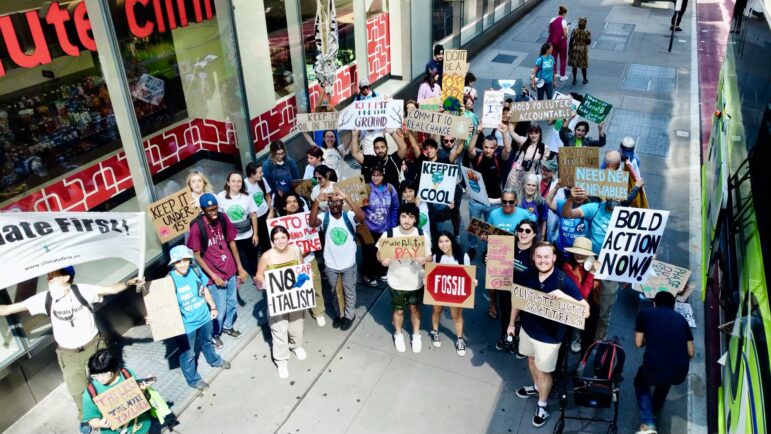Written by Kate Saylor, CCAN’S NoVa New Leaf Volunteer
The Trump administration has chosen to recklessly eliminate diversity, equity, and inclusion (DEI) from the fabric of our federal government, and many businesses, large and small, are following suit. If only climate change would take a similar tactic and focus its efforts only on those with the means to respond to its devastating destruction, rather than taking a DEI approach by giving disadvantaged communities an equal (and often greater) taste of its wrath.

With the elimination of DEI, the administration aims to achieve more “merit-based” hires, but I fear that, as has historically been the case, hiring committees (made up of predominantly affluent white men) will hire candidates that look, sound, and feel familiar, creating a government that doesn’t understand what it’s like to grow up without wealth or privilege or with skin pigmentation that betrays one as “other.” This will be so incredibly dangerous during a time when, again, climate change does not follow the memo to target only the rich and privileged. Of course, it would be lovely for climate change to focus its devastation only on those who have, say, another house they can retreat to. Perhaps though, we could settle for it to target only those who have comprehensive home insurance, a personal vehicle or two, and excellent health insurance to cover the detrimental effects of wildfire smoke and other pollutants, heat-related risks, and even the impacts on mental health that climate change brings.
But it won’t. Climate change will not reserve its wrath for those who can afford to face it. Instead, it harms the poor, who for example, are more likely to buy houses built in areas more prone to flooding, who can’t afford to evacuate, and who don’t have access to health care when they’re impacted. Communities of color often face higher health risks from environmental hazards (e.g., air pollution, traffic, contaminated water) and are more vulnerable to climate-related health effects due to racial and socioeconomic disparities, including lack of access to quality housing, education, and food.
Turning our backs on DEI will mean not only fewer job opportunities for intelligent, creative, qualified members of the LGBTQIA+ community but also less access for people with physical or mental disabilities. Climate change, however, is not giving up on its DEI pursuits. Those who identify as queer can still expect a more difficult time recovering from climate disasters. This may be because recovery efforts are often powered by churches and other nonprofits that sometimes turn away the LGBTQIA+ community and other minorities. Perhaps it goes without saying, but climate change also has no intention to stop targeting our community members with limited abilities. From evacuation services to recovery to maintaining support services during emergencies to everyday struggles with air quality, the negative impacts of climate change disproportionately harm people with disabilities.

My sister was in the hospital this fall on a ventilator. She has Downs Syndrome, and, we discovered, a very rare autoimmune disease. Because she was fighting for her life, she didn’t have to fight for saline at the time, but many others did because saline was in short supply after Hurricane Helene hit a critical manufacturer in North Carolina. Last week however, as she received life-saving treatment for her autoimmune disease, we were told that the treatment should end with a saline drip, but saline is still in short supply, so she couldn’t get it.
Eliminating DEI from the federal government eliminates the opportunity to cultivate a culture of listening to the voices of those most impacted by climate change. But here in our communities, we can still make a difference. By joining grassroots organizations like the Chesapeake Climate Action Network, we can amplify the voices of frontline communities, push for stronger policies, and advocate for a more just, sustainable future. Together, we can take concrete steps to reduce emissions, protect our environment, and ensure that those most affected by climate change have a seat at the table. Now is the time to act — our communities need us, and our planet depends on us. Get involved, stay informed, and help create real change!
















